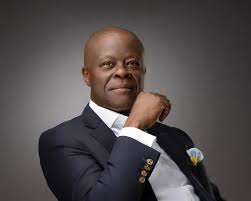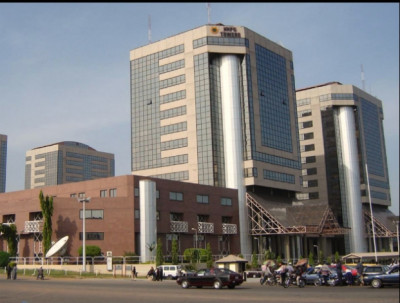By Eric Elezuo
A Federal Government of Nigeria petroleum regulatory agency, the Nigerian Midstream and Downstream Petroleum Regulatory Authority, (NMDPRA), has dismissed petroleum products from the Dangote Refinery as inferior, in the guise of those f4om Watersmith and Aradel, making a case for superiority of imported ones.
The revelation was made by the Chief Executive Officer of NMDPRA, Mr. Farouk Ahmed, while responding to questions from a section of the press, a video of which is trending online, adding that the refinery is only 45% completed, and yet to be licenced for operation by the Nigerian government.
Earlier, the Vice President of Dangote Industries Limited, Devakumar Edwin, had alleged that most fuel products imported into Nigeria are substandard, blaming International Oil Companies (IOCs) of frustrating Dangote’s quest for production.
In the short video, which lasted a little over a minute, Mr. Ahmed debunked theories attached to the functionality of the Dangote Refinery, saying it does not have the capacity to ‘feed’ the nation of its petroleum needs, as it stands. He however, refuted arguments that some elements within the oil and gas sector were trying to scuttle the Dangote Refinery.
A transcript of the NMDPRA’s boss short response is as follows:
“It about concerns of supply of petroleum products acros the nationwide, and the claim that we are trying to scuttle Dangote. That is not so. Dangote Refinery is still in the pre-commissioning stage. It has not been licenced yet. We haven’t licenced them yet. I think they are about 45 per cent completed, or completion rather.
“We cannot rely on one refinery to feed the nation, because Dangote is requesting that we suspend or stop imports, especially of AGO and DPK, and direct all marketers to his refinery. That is not good for the nation in terms of energy security, and it is not good for the market because of the monopoly.
“Dangote Refinery, as well as some modular refineries like Watersmith Refinery and Aradel Refinery, are producing between 650 and 1,200 PPM. Therefore, in terms of quality, their products are inferior to imported ones,” he stated.
It will be recalled that only last Sunday, the President, Dangote Industries Limited, Aliko Dangote, while hosting senior journalists from across various media concerns, revealed that the Nigeria National Petroleum Company Limited (NNPCL) owns only 7.2% of stakes in the refinery, and not 20 percent as widely circulated. He also revealed that the refinery is set to begin fuel supply in August 2024.
Many stakeholders and respondents have alleged that there’s no love lost between the government of the day and the Dangote Group, and that explains the hiccup situation surrounding the takeoff the $19 billion refinery.

 News6 years ago
News6 years ago
 Featured7 years ago
Featured7 years ago
 Boss Picks6 years ago
Boss Picks6 years ago
 Headline6 years ago
Headline6 years ago
 Headline6 years ago
Headline6 years ago
 Headline6 years ago
Headline6 years ago
 Headline6 years ago
Headline6 years ago
 Headline6 years ago
Headline6 years ago













